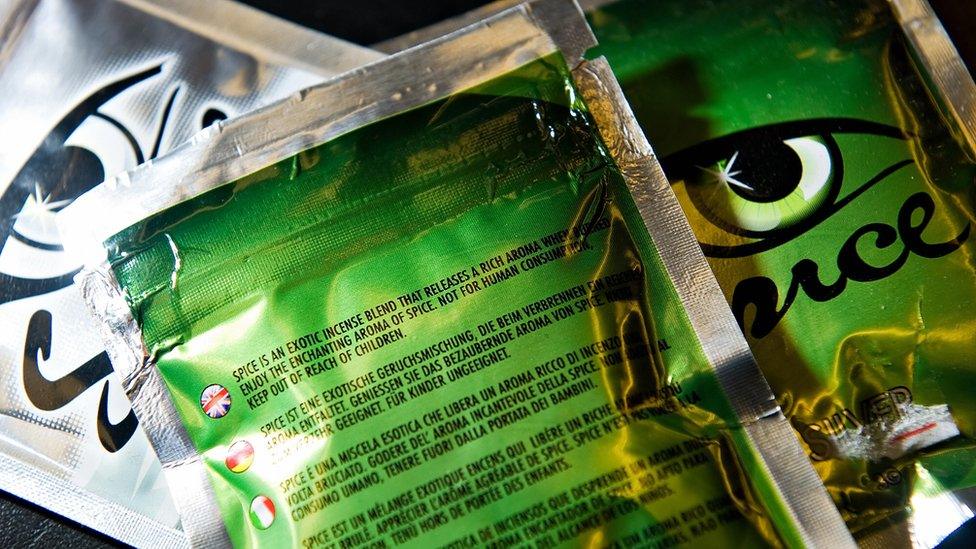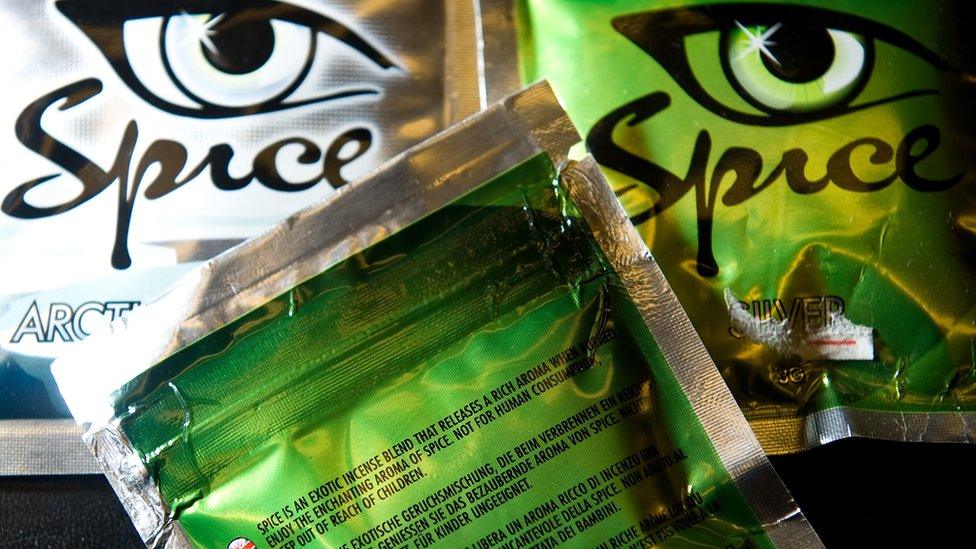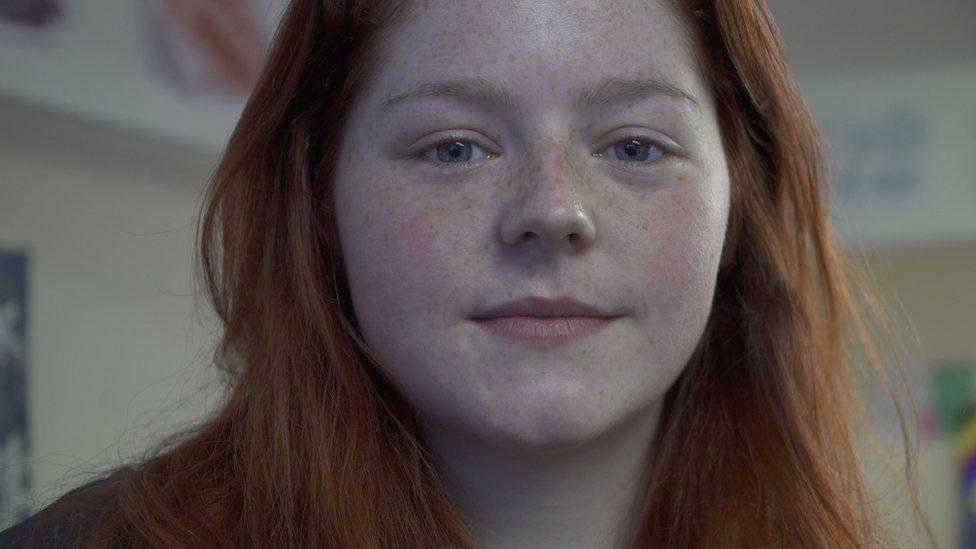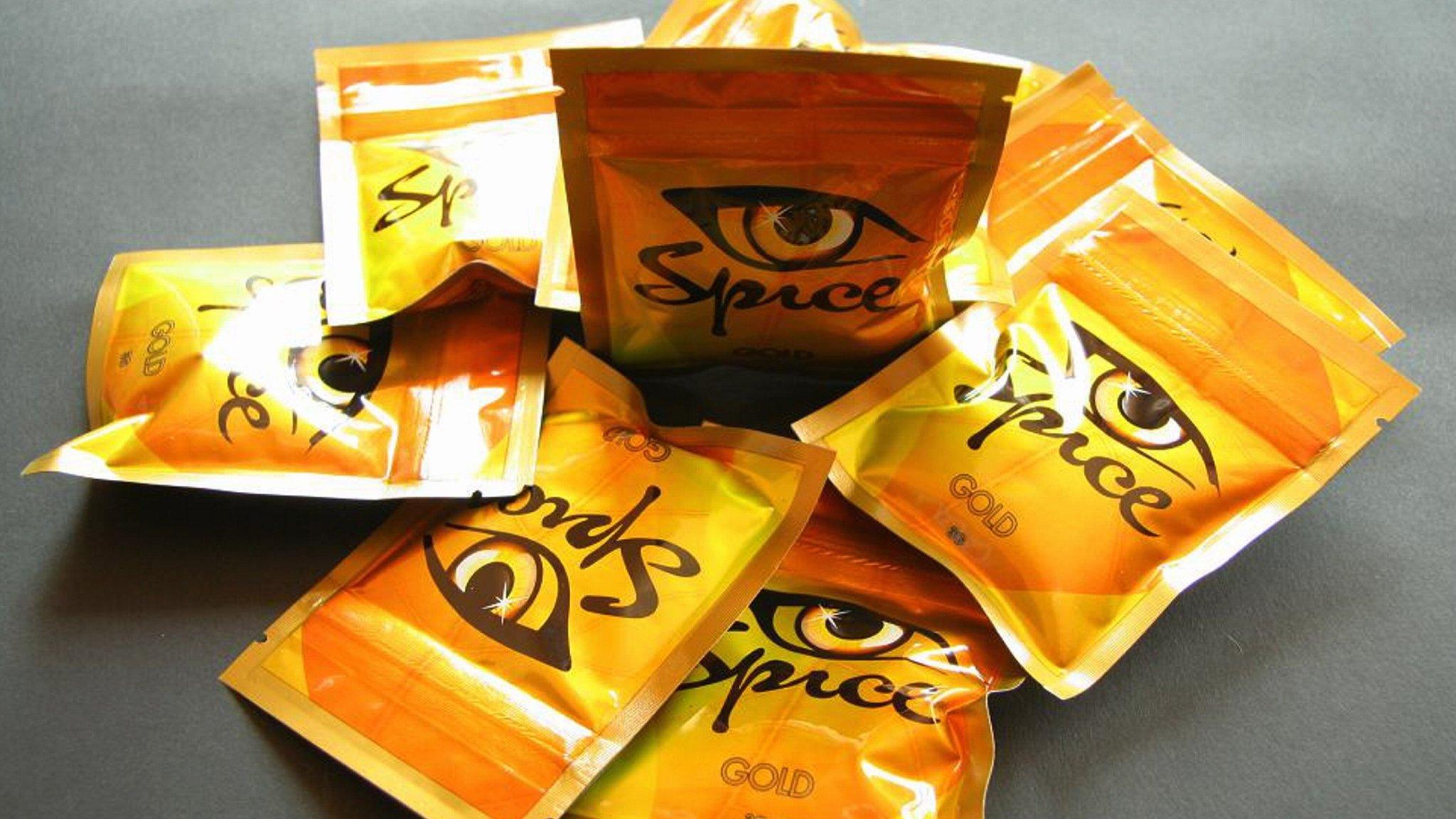Manchester MP asks home secretary for help to tackle Spice 'crisis'
- Published

Ms Powell said the Spice problem in Manchester was "spiralling out of control"
An MP has asked the home secretary for help with the issue of people taking former legal high Spice in Manchester.
Lucy Powell said in a letter that after a "recent spate of incidents" in her Manchester Central constituency, the problem was "reaching crisis point".
She has requested an urgent meeting with Amber Rudd to discuss the issue.
The Home Office said so-called "legal highs" had been outlawed and "tougher controls" of the synthetic cannabinoids found in Spice were in place.
On Tuesday, Greater Manchester Police Ch Supt Wasim Chaudhry said Spice-related incidents were putting pressure on public services, adding it was "a problem that we cannot afford to get any worse".
The synthetic drug can leave people in a zombie-like state and cause hallucinations, psychosis, muscle weakness and paranoia.

Police were called to 58 incidents related to Spice in Manchester between Friday and Sunday
In the letter sent on Monday, Ms Powell said the ban on former legal highs meant the trade in Spice had "shifted from the shops onto the streets".
She said the drug was "astonishingly cheap and increasingly potent", warning it was only a matter of time before someone in the city died from using it.
She added that the council and police were trying to address the problem but were "struggling to cope".
The issue was "only adding to the existing strains on our ambulance and police services," she said, adding: "I'm extremely concerned about their ability to tackle the problem without further investment and support."
Safeguarding Minister Sarah Newton said the government's drug strategy will be published shortly, adding that the Psychoactive Substances Act, passed in 2016, had outlawed "so-called 'legal highs' and introduced even tougher controls for synthetic cannabinoids".
Anyone found in possession of the substance "can now be jailed for up to five years", she said.
- Published10 April 2017

- Published9 April 2017

- Published8 March 2017

- Published10 May 2016

- Published13 May 2016

- Published24 November 2015

- Published22 May 2015
